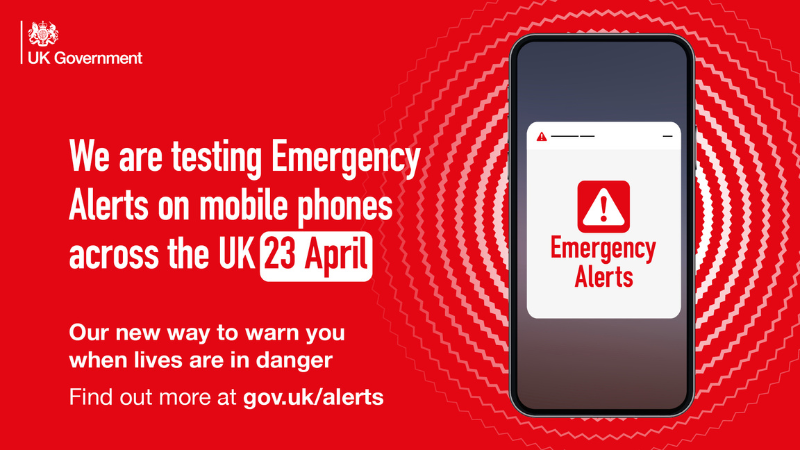
On the day, people across the country will receive the test alert which will be heard as a loud, beeping noise similar to a siren. Your device will also vibrate.
The noise/vibration will be difficult to ignore, and you will be required to acknowledge it before using your device. However, drivers have been urged to ignore the alert whilst behind the wheel.
There will be no action to take with the test on 23 April, it is designed to give you an idea of how it can help in an emergency situation.
In the future you may receive an alert on your phone, if you do, please read the alert carefully and follow the instructions. Please remember its look and feel in case you receive one again. To find out more about how it works, watch the video available at gov.uk/alerts.
When and why was it launched?
The new system was announced earlier in the year by the government and will enable people to be contacted via their mobile phones when lives are in danger. It will be used to warn you in the event of emergencies, such as severe flooding, fires, and industrial incidents. When necessary, warnings will be sent to your mobile phone with instructions on how to stay safe.
What to do if you’re deaf, hard of hearing, blind or partially sighted?
A message on your screen will tell you about the emergency and what you need to do. Depending on your phone’s features, the alert will work with screen magnification and may read the message out for you having also overridden volume settings. The unique noise emitted by the phone should also be audible for those who use a hearing aid. You’ll be able to check if an alert is genuine at gov.uk/alerts.
What about my personal data?
Emergency alerts are sent to all compatible 4G and 5G mobile phones when there’s a danger to your life, health or property in the area you’re located. They don’t track your location, need your phone number, or collect personal data. Only the government and the emergency services will be able to send them.
What if I don’t have a mobile phone?
Emergency alerts will be just one of the ways the government communicates with the public about emergency situations. So, if you don’t have a mobile phone, don’t worry – you’ll still be made aware through the media and other channels.
What if I want to opt out?
If you receive an alert, read the alert carefully and follow the instructions. You can opt out of an emergency alert, however, we strongly recommend that people do not opt out of the service, as it is intended to warn you when lives are in danger. If you’d like to opt out search your settings for ‘emergency alerts’ and turn off emergency alerts. If this does not work, please contact your device manufacturer. For further advice go to gov.uk/alerts/opt-out.
An FAQ has been put together by the government to help you with any queries you may have. If you have any further questions that are not covered by this, please email [email protected].